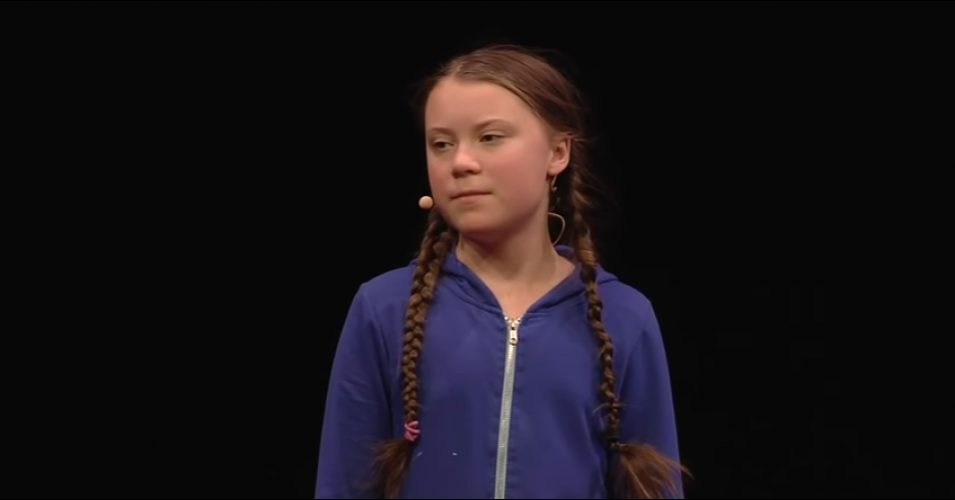Featured image: 15-year-old Greta Thunberg of Sweden realized at a young age the enormous gap between what climate experts were warning and the actions society was taking. The difference was so drastic in her opinion that she decided to take matters into her own hands. (Photo: Youtube/Screenshot/TEDxStockholm)
by Jon Queally / Common Dreams
As youth climate campaigners in the U.S. city of Brooklyn on Wednesday plan to continue a climate strike at least partly inspired by the ongoing vigil begun by 15-year-old Greta Thunberg in Sweden earlier this year, a new TEDx Talk released this week reveals that what inspired the Swedish teenager to take action was as simple as it was profound: she fell into sadness as she saw the leaders of the world—even those who admitted human-caused global warming was an “existential crisis”—continue to act and make policy decisions as though no emergency existed.
Everyone keeps saying, Thunberg declares in the 11-minute talk, that climate “is the most important issue of all, and yet they just carry on as before. I don’t understand that. Because if the emissions have to stop, then we must stop the emissions. To me that is black or white. There are no gray areas when it comes to survival. Either we go on as a civilization or we don’t. We have to change.”
As a key part of the talk, Thunberg describes how at the age of eleven, several years after learning about the concept of climate change for the first time, she fell into a depression and became ill. “I stopped talking. I stopped eating,” she explains. “In two months, I lost about ten kilos of weight. Later on I was diagnosed with Asperger’s Syndrome, OCD, and selective mutism—that basically means I only speak when I think it’s necessary.”
After a short pause, she adds, “Now is one of those moments.”
Watch the full talk:
“For those of us on the spectrum,” Thunberg explains to the audience, “almost everything is black or white. We aren’t very good at lying and we usually don’t enjoy participating in the social game as the rest of you seem so fond of. I think in many ways we autistic are the normal ones and the rest of the people are pretty strange—especially when it comes to the sustainability crisis.”
Towards the conclusion of her talk, Thunberg says that “this is when people usually start talking about hope—solar panels, wind power, circular economy, and so on—but I’m not going to do that.”
And continues, “We’ve had thirty years of pep-talking and selling positive ideas. And I’m sorry, but it doesn’t work. Because if it would have, the emissions would have gone down by now—they haven’t.”
Finally, she says: “Yes, we do need hope—of course, we do. But the one thing we need more than hope is action. Once we start to act, hope is everywhere.”
